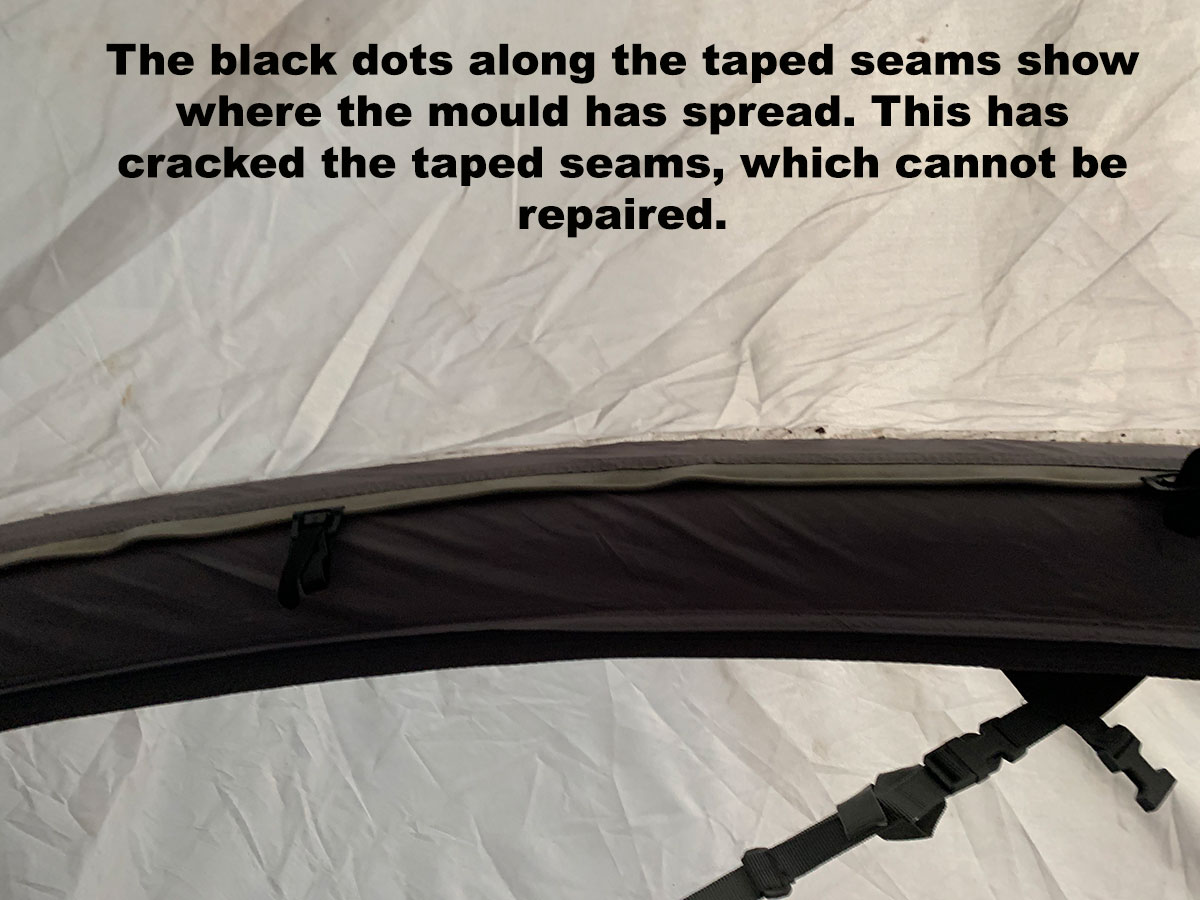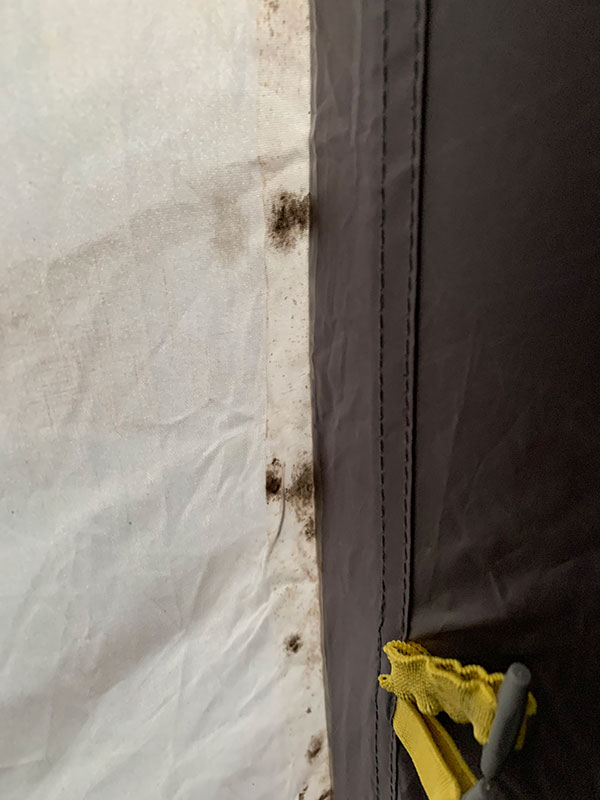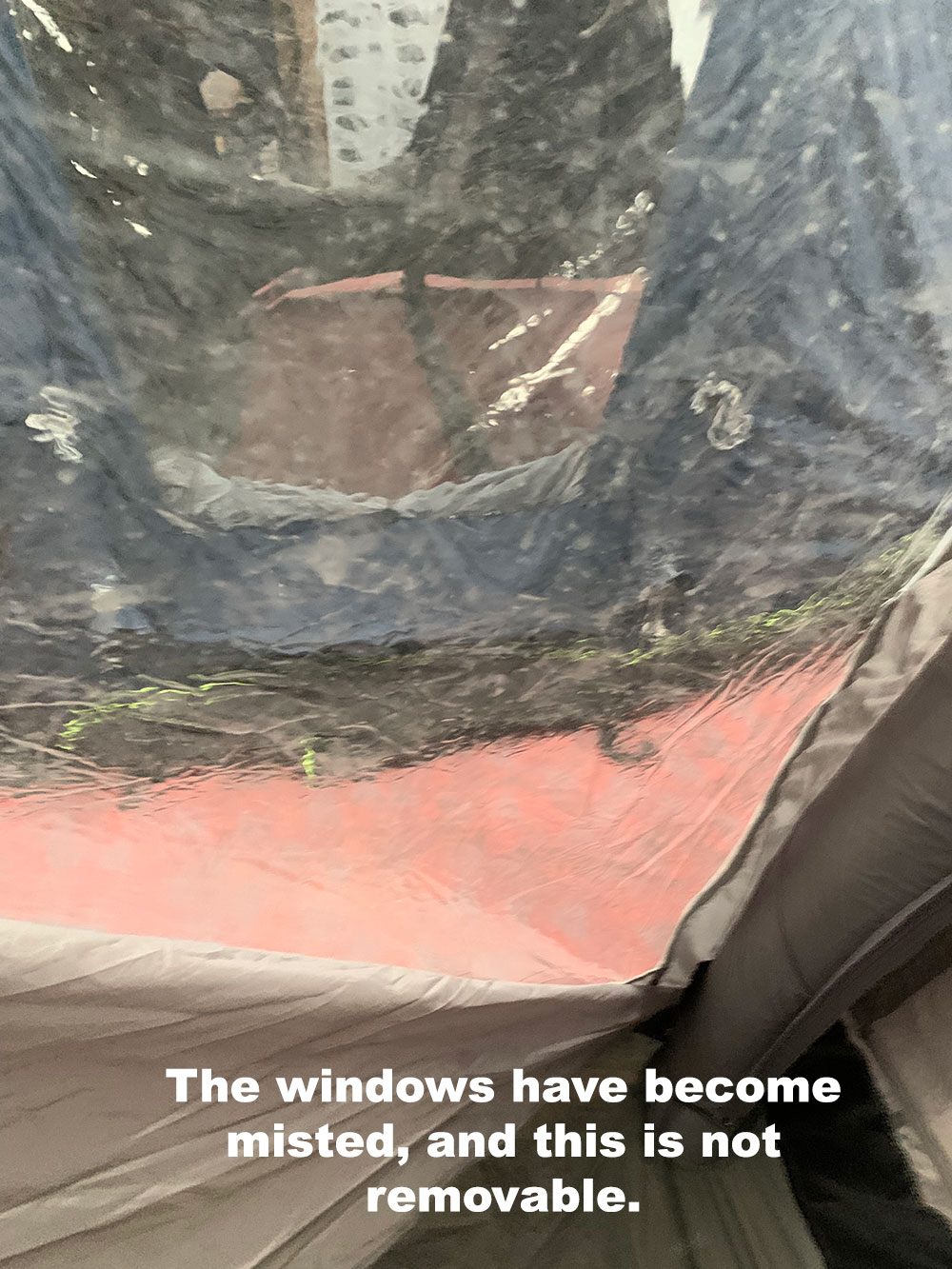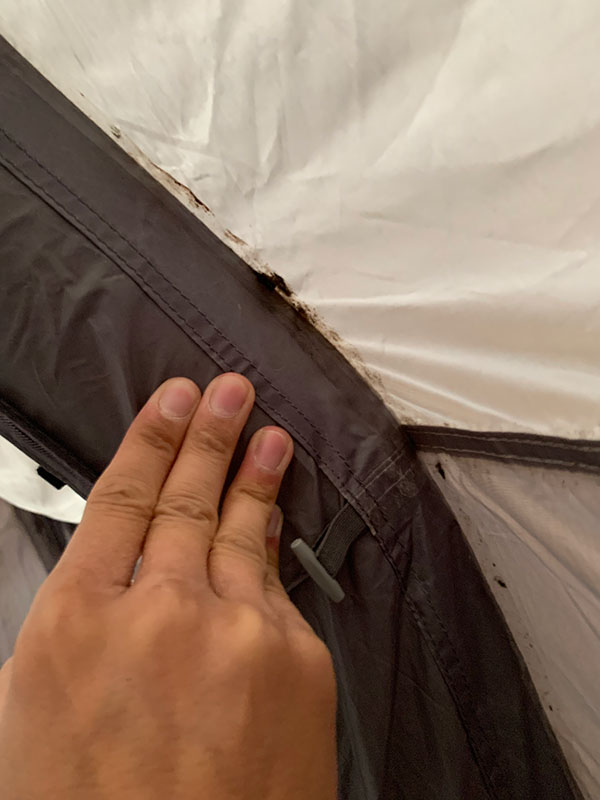Why You Should Never Pack away your Tent or Awning Wet
Every season, this seems to be a common issue in our industry, whether people lack the space at home to effectively pitch their tent to dry it, or merely forget about it and pack it away for a few weeks damp or wet, thinking it will be ok after being caught out by rain or poor weather.
Fair enough, sometimes we all get caught out by the weather, and packing a tent away wet for a day or two, isn’t going to do long-term damage. However, the second the weather does clear up – I cannot emphasize the importance of opening up your tent or awning, and making sure it is packed away dry, especially before long term storage.
What Happens when you pack away a tent wet?
As with anything packed away wet, over time, mould and mildew will built up throughout the tent, this affects the tent in many ways, as it will degrade the fabric, and the tent will start to smell. Typically, the tent smells like cat wee, if it has been left too long, in my experience, this usually means the tent has died and gone to tent heaven.
I am returning my tent for repair / replacement or a refund. Why does it need to be dry?
Many manufacturers / retailers will inspect your returned tent, to see if it can be repaired for a future lifetime and to check the nature of the faults – even if you have returned it for a refund due to a fault, most tents can be salvaged. So ensuring it is dry, will allow repairs to be undertaken. If packed away wet, the tent risks being permanently damaged and ruined, which is bad for the environment, as then it is only fit for the bin.
When a tent is returned to us – it may go into a queue for inspection depending on the time of year, which can take anywhere from 2-4 weeks. In this time, the tent develops mould if packed away wet, which is not covered under warranty – in this instance, the tent will be returned to you without attention as the warranty is voided. Some manufacturers also charge if this is to happen.
-
If a tent is packed away wet, then mould will develop on the taped seams, and fabric. This degrades the fabric to the point it is no longer repairable.
-
The tent will begin to smell very strongly, and we pitch them indoors, making it quite difficult to pitch.
An Example of a Tent Packed Away Wet over a Time Period
This customer returned their tent to us because it was leaking water, upon pitching the tent, we were able to ascertain that the tent has been packed away wet, and for some time.
-
It was stinky!
-
Mould spots had developed on the roof panel.
-
Mould spots had developed on the taped seams, which caused them to crack, which is the reason why the tent is leaking.
-
The windows had misted, making visibility from them really poor, and we cannot remove the misting from the windows.
All in all – the tent is only fit for the bin, this was not a manufacturing issue, it was poor care from the person who owned the tent. As a result, that’s a £1000 tent ruined only a year into what should have been a long lifetime. No manufacturer would ever cover mould, mildew or degraded fabric as a result of packaging a tent away wet. Photos below.
Every season, this seems to be a common issue in our industry, whether people lack the space at home to effectively pitch their tent to dry it, or merely forget about it and pack it away for a few weeks damp or wet, thinking it will be ok after being caught out by rain or poor weather.
Fair enough, sometimes we all get caught out by the weather, and packing a tent away wet for a day or two, isn’t going to do long-term damage. However, the second the weather does clear up – I cannot emphasize the importance of opening up your tent or awning, and making sure it is packed away dry, especially before long term storage.
What Happens when you pack away a tent wet?
As with anything packed away wet, over time, mould and mildew will built up throughout the tent, this affects the tent in many ways, as it will degrade the fabric, and the tent will start to smell. Typically, the tent smells like cat wee, if it has been left too long, in my experience, this usually means the tent has died and gone to tent heaven.
I am returning my tent for repair / replacement or a refund. Why does it need to be dry?
Many manufacturers / retailers will inspect your returned tent, to see if it can be repaired for a future lifetime and to check the nature of the faults – even if you have returned it for a refund due to a fault, most tents can be salvaged. So ensuring it is dry, will allow repairs to be undertaken. If packed away wet, the tent risks being permanently damaged and ruined, which is bad for the environment, as then it is only fit for the bin.
When a tent is returned to us – it may go into a queue for inspection depending on the time of year, which can take anywhere from 2-4 weeks. In this time, the tent develops mould if packed away wet, which is not covered under warranty – in this instance, the tent will be returned to you without attention as the warranty is voided. Some manufacturers also charge if this is to happen.
- If a tent is packed away wet, then mould will develop on the taped seams, and fabric. This degrades the fabric to the point it is no longer repairable.
- The tent will begin to smell very strongly, and we pitch them indoors, making it quite difficult to pitch.
An Example of a Tent Packed Away Wet over a Time Period
This customer returned their tent to us because it was leaking water, upon pitching the tent, we were able to ascertain that the tent has been packed away wet, and for some time.
- It was stinky!
- Mould spots had developed on the roof panel.
- Mould spots had developed on the taped seams, which caused them to crack, which is the reason why the tent is leaking.
- The windows had misted, making visibility from them really poor, and we cannot remove the misting from the windows.
All in all – the tent is only fit for the bin, this was not a manufacturing issue, it was poor care from the person who owned the tent. As a result, that’s a £1000 tent ruined only a year into what should have been a long lifetime. No manufacturer would ever cover mould, mildew or degraded fabric as a result of packaging a tent away wet. Photos below.




